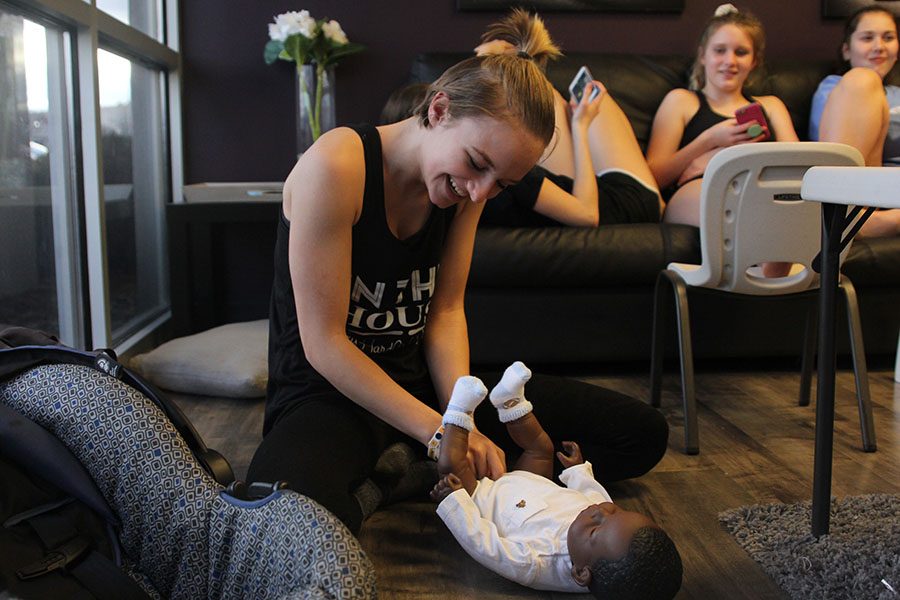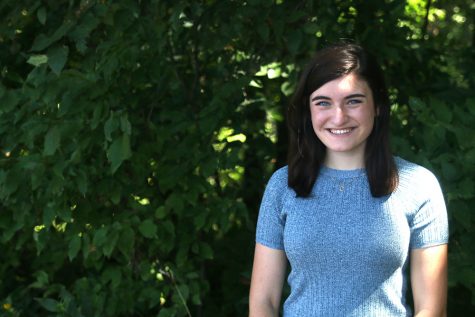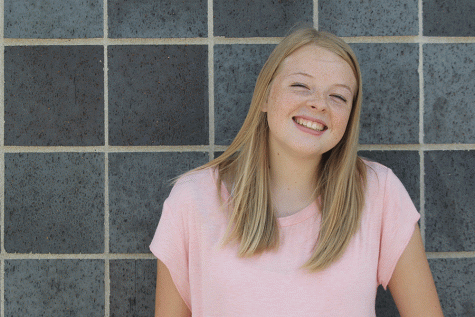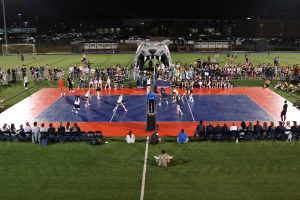Human Growth and Development students learn the challenge of parenting
Students participate in the “Baby Think It Over” project and reflect how it changes their routines and everyday lives
At Perception Dance Company, sophomore Megan Bryant changes the diaper of her baby for her Human Growth and Development project on Sunday, Jan. 29. “The nights were hard and I didn’t get a lot of sleep some nights,” Bryant said. “When I went out with the baby I loved it when I got comments on the baby. I also just love kids so this was just fun for me.”
March 31, 2017
In Human Growth and Development classes, students each year participate in the “Baby Think It Over” project, which allows students to take care of an electronic baby that simulates the behaviors of a real newborn baby. The baby acts like a newborn in the sense that it must be fed, diapered and burped on a regular schedule.
Students in the class took the baby home over a weekend, and returned it for a grade to teachers the following Monday.
The process was difficult to manage and keep up with at night, according to sophomore Shayla Le.
“[The experience] was hard. I had to wake up really late at night to take care of [the baby],” Le said. “It was just really rough.”
While some students get excited about bringing the babies home, Human Growth and Development teacher Elle Gray said that excitement quickly dies down after students took the baby home.
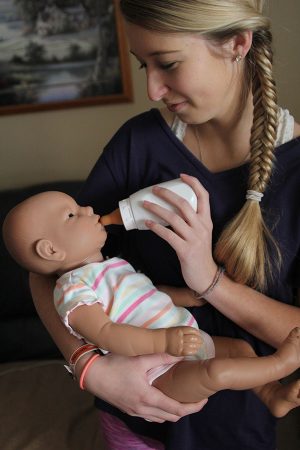
Feeding the baby in her arms, senior Sarah Butler works on her Human Growth and Development project at home on Sunday, Feb. 5. “I learned that babies are a lot more work than you’d think,” Butler said. “If it started crying, I would have to drop everything to take care of it; it was so unpredictable.”
“A lot of times [students] are really excited to take home the baby. They can’t wait to pick out the clothes,” Gray said. “But when it’s actually time to bring the babies back, they are so excited to get rid of it.”
The project also teaches students the experience of taking care of a newborn, and how those responsibilities can be demanding.
“[The project] gives the students an idea of the responsibilities of raising an infant,” Gray said. “You have to wake up in the middle of the night, feed them, diaper them and burp them, so basically all the care of a newborn baby.”
The project is well-liked amongst students, but was a challenge, according to Le.
“[The hardest part was] waking up, trying to find out what was wrong: either having to burp it, feed it, change it’s diaper, or rock it to bed,” Le said. “[The easiest part] was probably when it didn’t make any sound.”
The class also teaches students the importance of their lives as young adults and shows them the amount of free time they have.
“[The project teaches students] that they don’t want to have children anytime soon, and that it is a lot of work,” Gray said. “They realize how important it is to have their own freedom.”
Le believed that while the project was difficult, it showed the importance of maturity and having the ability to take care of another life.
“Instead of caring about myself, I had to take care of someone else and put that baby [as] my first priority,” Le said. “[The class] shows you how to be an adult and take care of someone other than yourself.”


